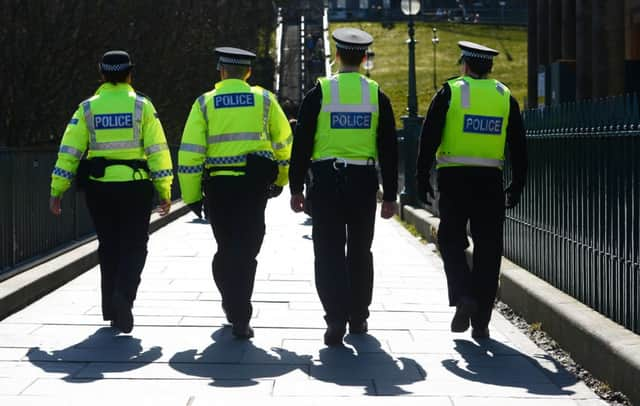Leaders: To put party before public does harm


Searching scrutiny of what a government does and the consequences of its actions is a vital part of the machinery, for it is through that function that bad legislation can be prevented and government can be held to account, more often than not at the next election.
In Holyrood yesterday that didn’t work. The Scottish Parliament’s audit committee reported on its findings after an inquiry into whether the savings that were supposed to have been made by the merger of Scotland’s regional police forces into one national force – projected to be £1.1 billion by 2026 – have been achieved.
Advertisement
Hide AdAdvertisement
Hide AdThe MSPs found that the £64 million savings made in 2013-14, the first year of Police Scotland, indicated that the cost reduction plan looks to be reaching its target sums. But some MSPs had doubts that these savings would recur, raising the worry that beneath the surface the costs plan is off track. These are perfectly reasonable non-partisan questions which ought to be asked of any accounts and financial plan, public or private, which claims to be making long-term savings.
This, however, is not the majority opinion, which said that the Scottish Police Authority, the civilian authority with responsibility for financial planning, just needs to clarify a few details.
Such a difference of opinion might be tolerable if it cut across party lines. But in this case, it demarcates the line between those of the governing SNP, who are in the majority on the committee, and three main opposition parties who include the committee’s convener and deputy convener but are in the minority. A quite reasonable conclusion is that the SNP committee members were motivated by saving government ministers from embarrassment.
Putting party before public interest does the parliament long-term harm. The parliament was designed to do its job without a second house to scrutinise legislation, that vitally important job fell to its committees to act as the necessary checks and balances. It was designed in conjunction with a proportional representation voting system which was supposed to prevent any one party having an outright majority, thus committees reflecting this mix would have conveners and majorities not with the ruling party or parties. When the SNP won a majority at the last election the threat to the committee system was apparent. Now we see the committee system has broken down, as the dissenting MSPs feel they have no option but to issue their own minority report.
In these circumstances it is up to the governing party to put democracy and the integrity of the parliament before short-term gain. It is up to them to be mature enough to allow checks and balances, to realise the real role of the committee, and find a compromise to put democracy before party.
Tram fare rise all too predictable
What form of public transport has just announced a fares increase but has yet to carry a single fare-paying passenger? Of course, it could only be Edinburgh’s hapless tram line.
Last September, the city council announced a “draft” fare of £7.50 return to the airport, and yesterday it said, er, actually, it will be £8. The 50p increase equates to a 7 per cent rise, or about five times more than inflation over the intervening period, so that cannot be the cause.
It is almost fitting, in a warped way. The line cost more than forecast, took longer to build than foreseen and is a lot shorter than planned, so why shouldn’t the fares follow the same dismal pattern?
Advertisement
Hide AdAdvertisement
Hide AdBecause it is another PR disaster to heap on top of all the other PR disasters, that’s why. A good PR strategy, indeed a generally good business tactic, is to under-promise and over-deliver. But instead the tram bosses seem determined to over-promise and under-deliver.
We suspect that the burden of the fares increase will fall on foreign visitors. Cannier citizens will know that the Airlink bus is cheaper and arguably a bit more convenient. And as they will still benefit from bus-equivalent flat fares on trams from and to all stops short of the airport, they may not complain much about airport-bound visitors paying the price.
But it does not bode well for the future. With a little bit more planning and some prudential financial forethought, this latest stumble could have been avoided. As it is, few can surely be convinced that the council tram masters know what they are doing. Certainly no converts to the project will have been won.